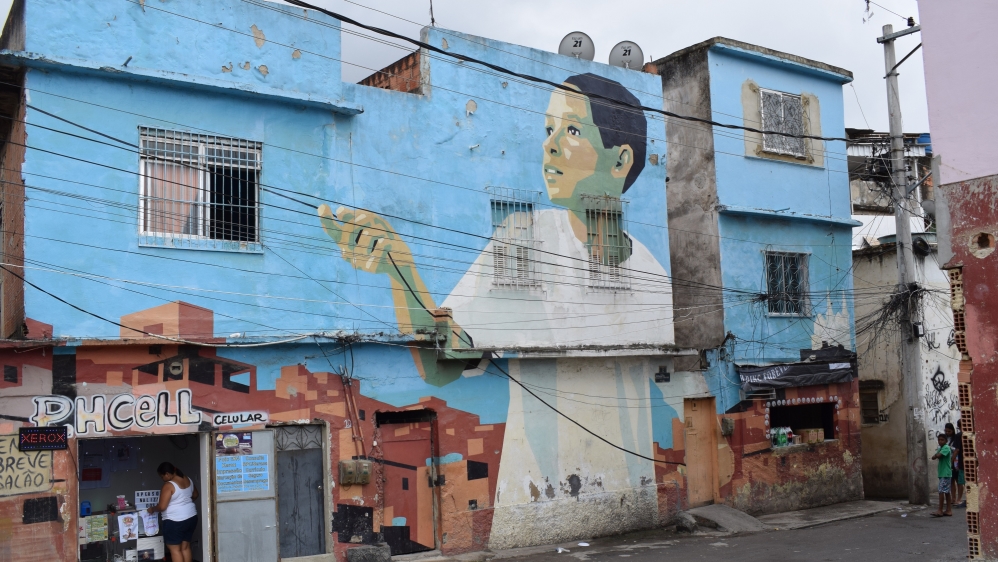In Rio, military intervention leaves behind a troubled legacy
Companies, agencies, institutions, etc
Rio
Al Jazeera
Rio's Public Security Institute
ISP
NGO Human Rights Watch (HRW
Intervention Observatory
Ferreira
the Brazilian Institute of Geography and Statistics
Figueiredo
praisedÂ
intervention teamÂ
Wilson Witzel
warnedÂ
Bolsonaro's
highÂ
Al Jazeera News
Al Jazeera Media Network
People
Thuany Farias da Silva
Penha
Michel Temer
Jair Bolsonaro
Zen Ferreira
Daniel Wilkinson
Silvia Ramos
Leonardo Soza de Lima
Ramos's assessment."Gunshots
Julio Cesar Figueiredo
Walter Souza Braga Netto
Richard Nunes
Stalin
Groups
Brazilian
deployment."These
Brazilians
Russian-Saudi
Soviet
Physical locations
Complex da Penha
Americas
Himalayas
Places
security,"Â
Locations
Rio de Janeiro
Brazil
Rio de Janeiro's
jumpÂ
New York
agrees."Unemployment
Penha
markedlyÂ
Saudi Arabia
Events
No matching tags

Summary
Those issues, he argued, should have been the focus of authorities' attention in Rio's favelas, where unemployment and poverty are widespread."The intervention should have been for culture, education and health - not the way that it has been conducted, which is through aggression, slaps in the face and beating down doors," Ferreira said."Instead, they used a method of extermination of human beings - executions."Last year's military intervention coincided with a record high number of people killed in police operations in Rio de Janeiro state, according to Rio's Public Security Institute (ISP), with 1,375 such fatalities between February and December.The data revealed a nearly 34 percent jump from the same period in 2017 and ensured that 2018 became the bloodiest year on record since the ISP began collating figures two decades ago.From March of last year onwards, as the intervention kicked into gear, nearly one in every four people killed in Rio died at the hands of the state, prompting New York-based NGO Human Rights Watch (HRW) to slam the "trail of death" carved out by the military's deployment."These killings make communities fear the police and much less likely to collaborate with the police in the fight against crime," said Daniel Wilkinson, HRW's Americas managing director, in a December report.Other observers suggested the intervention was only the latest and most glaring error in a series of public security policy mistakes in Rio, however."Rio is not a lost cause, Rio is a case of wrong security policies repeated over and over ⦠this accelerated and got worse under the military intervention," said Silvia Ramos, a coordinator for the Intervention Observatory monitoring group.According to the Observatory, authorities spent about 1.2 billion reais ($320m) on the intervention.The result was a well-financed failure, Ramos said, amounting to a "policy of confrontation, shootings and crossfire".In Ferreira's classroom, 20-year-old student Leonardo Soza de Lima supported Ramos's assessment."Gunshots are like music here, they happen all the time," he said as other students nodded in agreement. The military intervention, they claimed, intensified pre-existing violence and made everyday life increasingly unpredictable."You never knew what was going to happen ...
As said here by David Child